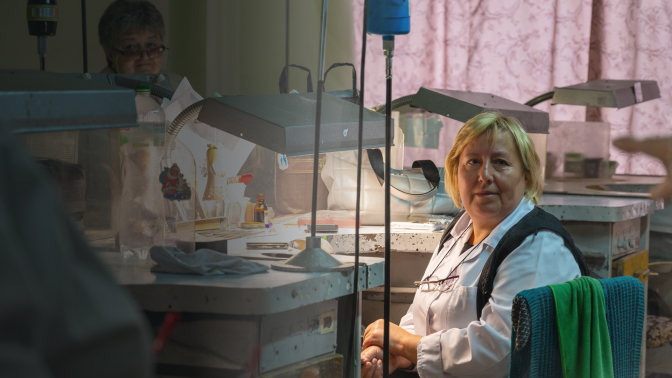
[For urgent updates please follow Ukrainian Freedom News on Telegram]
Recently, the State Property Fund announced its decision to sell the Lviv Jewellery Factory, setting its starting price UAH 144 million. In a comment to Lviv Now, they added that the auction will be held on October 20.
Rumours that the enterprise was on the verge of bankruptcy have been spreading since 2020. The Accounting Chamber then recommended to the Cabinet of Ministers handing it over for privatization. Finally, the matter has reached the auction. Here we looked at how the jewellery factory works today, what it is proud of and what problems it faces.
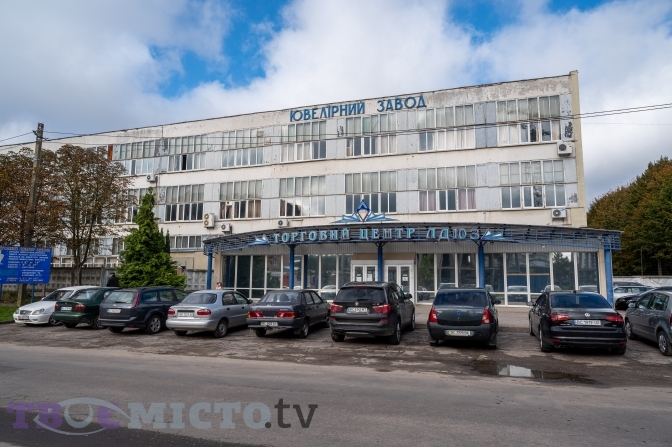
Jeweller’s craft
Ms Valentyna’s hands are so black that the delicate gold earring she wants to show us is barely visible between her fingers. She is just polishing the jewellery. Because of the special material used in grinding and polishing gold, her hands are coloured like this. A craftswoman works behind an old-fashioned machine in which a polishing disc rotates and which has two holes for hands with special sleeves.
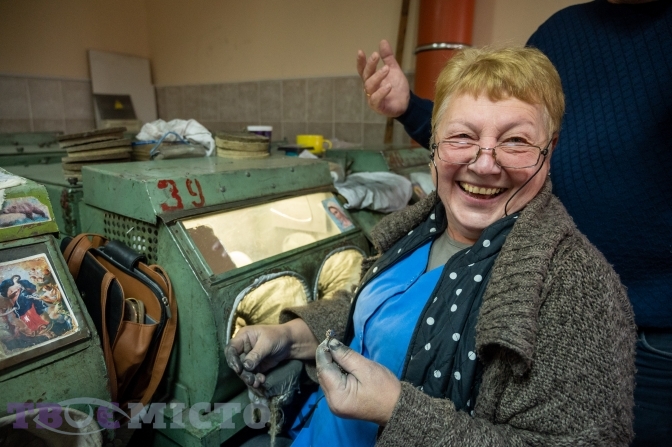
«This is for the decorations not to fall on the floor during work. The device has a special bottom where the remains of valuable metal are collected, which we then weigh,» – she explains.
The grinding shop of the Lviv Jewellery Plant used to be crowded. Although now, only Ms Valentyna and her colleague are here, there are more than a dozen old grinding machines standing idle.
The woman smiles kindly and gets back to work.
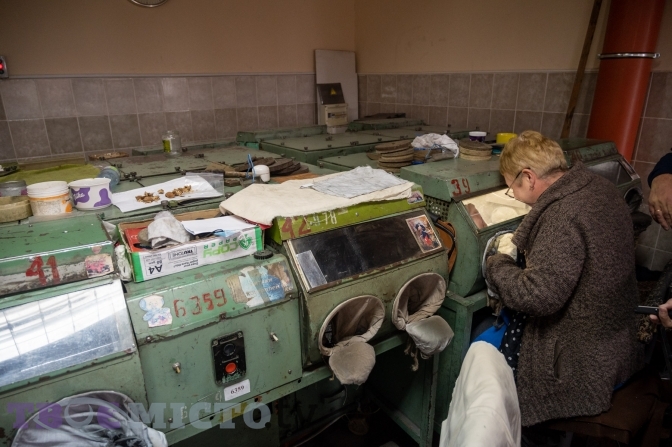
Before handing the jewellery over to Ms Valentyna, it is crafted by the jewellers. The room where they work is also quite noisy: the knocking of hammers, rustling. Craftsmen in white coats, like doctors or pharmacists, work by hand: they shape wedding rings, solder clasps, make earrings and pendants. Everyone has a bright lamp and an innumerable number of all kinds of tools on the table – hammers, clamps, metal spokes, scales, calculators, and grinding machines. Most jobs are also unoccupied. After all, most of the rooms in this huge building are empty.
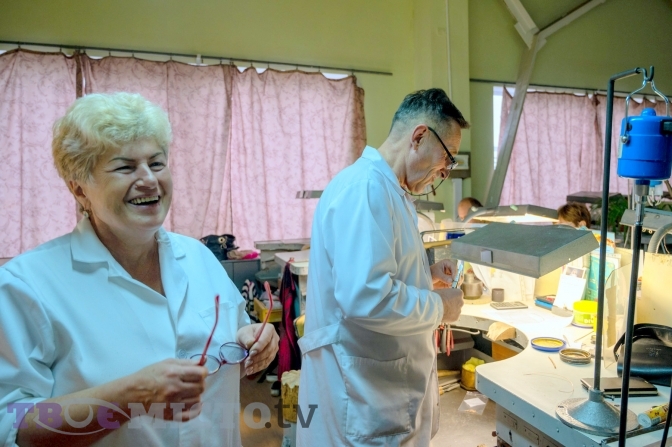
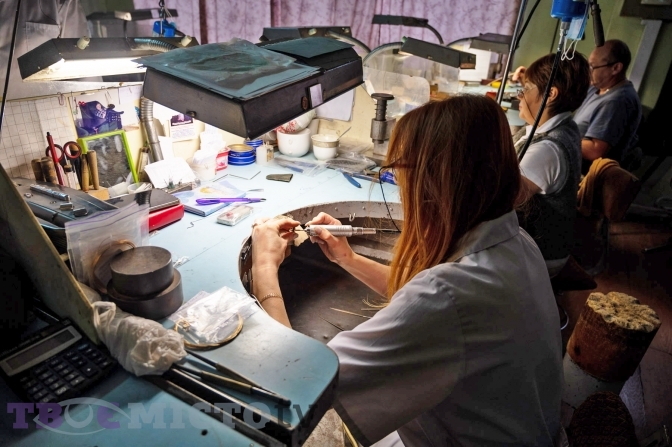
Work is only boiling on the first floor. Here is a workshop where «scrap» – the used gold products – are exchanged for new jewellery. There is a store nearby, which is quite crowded. Someone is looking at wedding rings, others – at silverware.
«We have a lot of customers, people buy something,» – says Ms Larysa. Still, she is noticeably nervous, saying that journalists have already come to them.
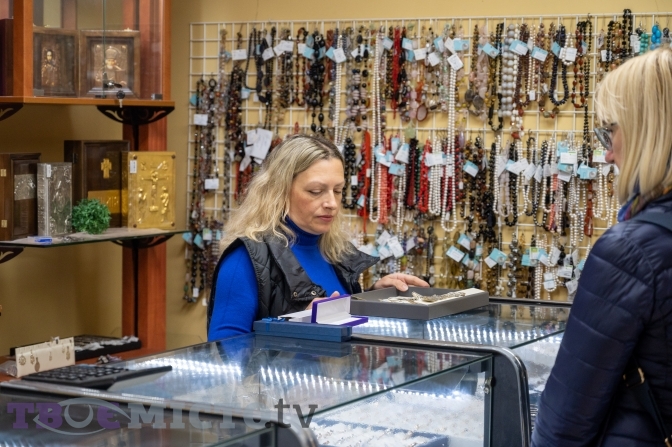
«They showed everything as if we should close, and everything to be privatized,» – she complains. «Don’t you think so?» – I ask. «We work, sell, and manufacture. You won’t find gold and products of such quality anywhere. Everything is [produced] according to state regulations. Many people know our chains, and they don’t remain on the shelves for long. Even thin ones, weighing two grams, do not tear,» – the woman says, avoiding a direct answer.
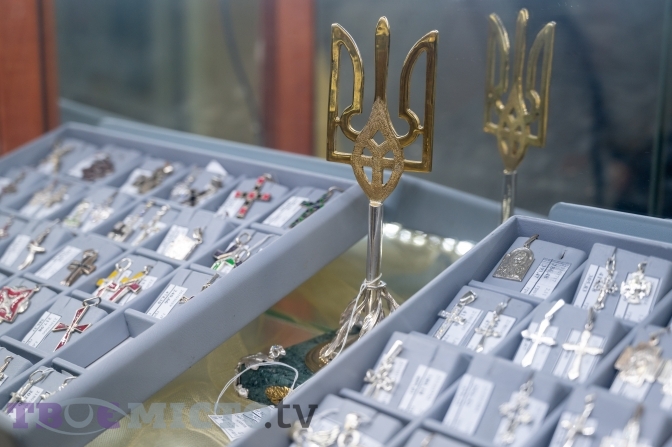
Ms Larysa has been working here for forty years, since coming to the company when she was eighteen. Her workplace is in the workshop, at a table with various test tubes.
The woman accepts the gold products that people bring for processing and checks the quality of the metal.
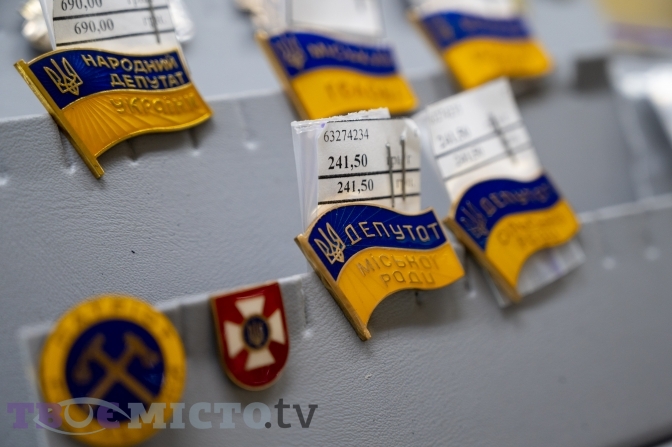
«I have acids in test tubes here, I’m checking the metal for a sample. Let’s say a person brings five grams of gold to us and can choose a product of the same weight. He only pays for the work,» – the woman explains.
«The factory can no longer work in this condition»
Meanwhile, the enterprise’s director Roman Monchyn is hurrying to us. By the way, he is both a chief engineer and an accountant. He says that if necessary, everything has been reduced, many people have several positions. The salary is minimal, starting at seven thousand, but there is also little work: «It’s because of this that problems have arisen – sales have decreased.»
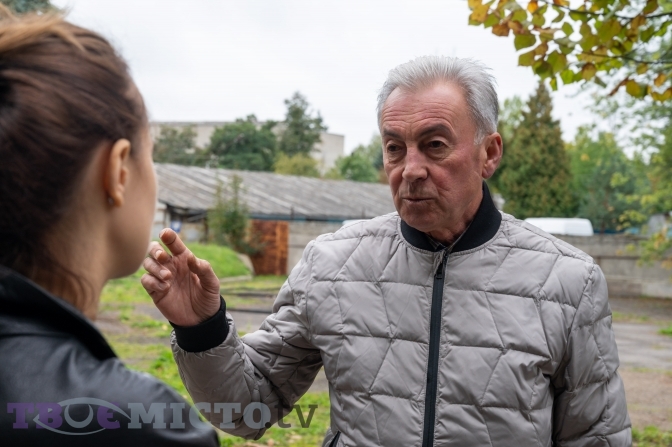
The Lviv Jewellery Factory was founded almost 80 years ago. However, this building, located at 2, Akademika Pidstryhacha Street, was built in 1972.
There are more than 12,000 square meters of space here, most of the premises are now unused, and it’s becoming increasingly difficult to take care of the territory, says Mr. Roman. Once 1,200 people worked here – now only 90. There are blocks of new buildings next to the plant.
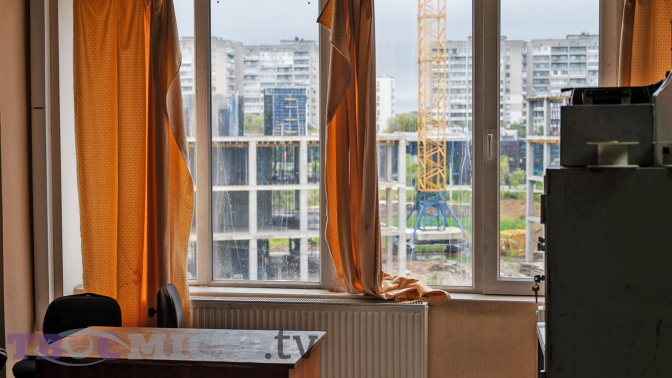
«Such factories were in Tashkent, Yerevan, a total of 17 for the entire Soviet Union. This is a huge area. The gold was stock, we got it from Moscow,» – continues the director, who has worked here for over forty years.
«I started as a design engineer, working with equipment. At the end of the 80s, there was an era of robotization. Robots were introduced, but, as it turned out, they were ineffective. So [the robots] were soon removed: they rearranged something wrong, lost details, and we have a collective financial responsibility,» – he explains.
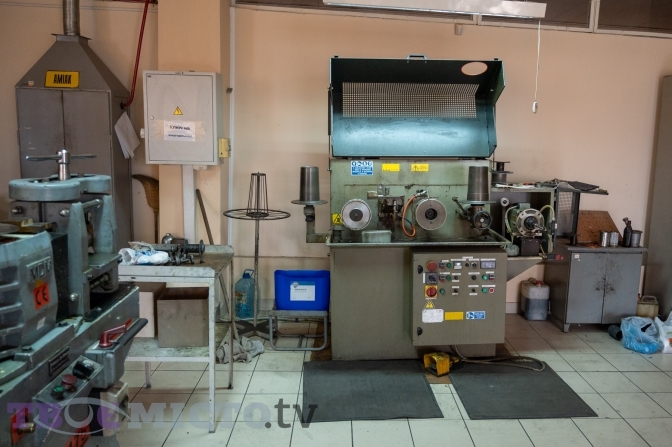
He says that at the beginning of the month, the teams receive gold, let’s say one kilogram, and at the end of the month, they have to hand over, for instance, 900 grams of finished products, 80 grams of residues from the grinding skin, after soldering, and 20 grams of irreversible losses. If something does not converge, the team pays from its own pocket.
Throughout its history, this state-owned enterprise has already overcome crises. The first difficulties began when the Soviet Union fell apart. Then there was nowhere to get gold, says Mr Roman. Therefore, at that time, the factory began to manufacture products from silver, which was bought in Crimea from a company that took it from batteries to torpedoes. Later, a workshop was opened at the factory, where they began to make products from the gold that people brought.
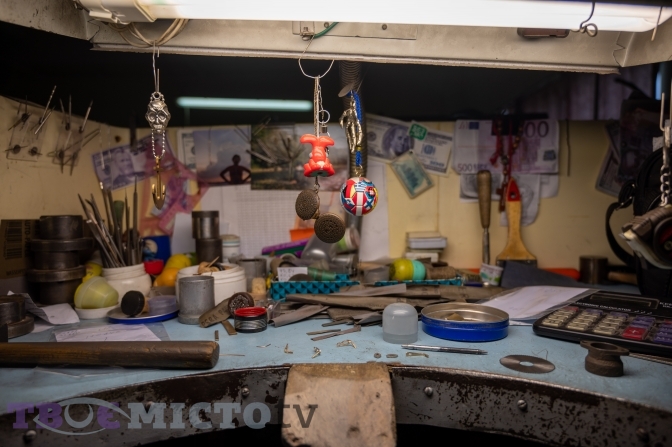
Then, private workshops appeared, and according to the director, it was unknown how they imported gold. It was a competition for the state-owned enterprise, but also a benefit, because this is how metal appeared on the market, which went from one workshop to another.
«Now we buy gold from one processing organization, because the bank is expensive, there are nuances. It processes waste from various technical equipment, and extracts gold parts from it. For example, some military equipment also contains gold. Previously, all contacts were made of precious metals, because they do not oxidize,» – says Roman Monchyn.
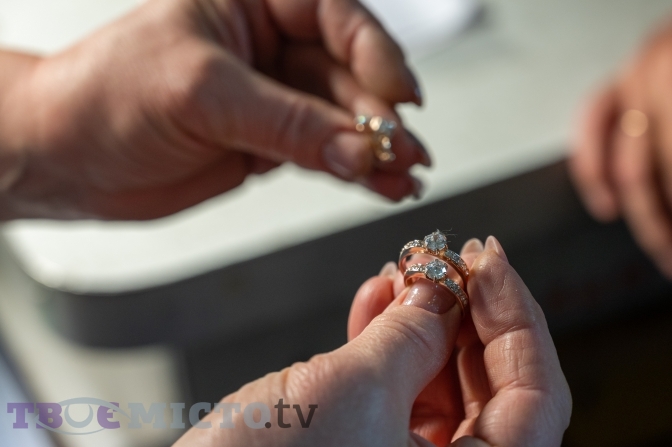
And he adds that the strongest competition in the jewelry industry began when inspections were cancelled in 2008, and the inspection that monitored compliance with state standards stopped working. «Once you could take a product in any store, demand documents for it, check the stamp, etc. At the same time, all these functions were transferred to the department for the protection of consumer rights. And no one ever came to us from there.»
The director explains that the quality of gold jewellery on the Ukrainian market is deteriorating, and the market has been filled with low-quality gold jewellery from Turkey, India, and China. In addition, the attitude towards gold jewellery is changing – it is becoming less popular.
«The trend has changed. If in 2008, of all jewellery sold in the world, 52% was made of gold, 38% was made of silver, and 10% was non-precious metals, now the share of gold products is 28%, silver products – more than 50%, and non-precious metals – more than 30% Demand is falling. So we are laying off people because there is no work,» – he claims.
Roman Monchyn says that the company can no longer work in this form: it is responsible for a too large territory, which cannot be heated or cared for. There are rather outdated approaches to production, but the quality of metal and products is high.
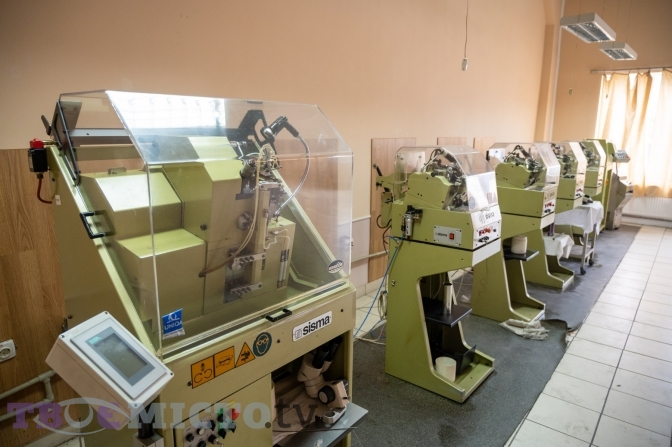
«I have been to Italy several times, I bought a whole chain production line there. Works well. In Italy, which processed 400 tons of gold per year, there was no enterprise that employed more than 50 people. With the amount we have, it is only possible to work with the «Soviet Union», when there are a lot of people and the «iron curtain». Our factory with 1,200 people could process three tons of gold in a year, and there the same three tons were processed by 50 people. There, this industry works in a different way,» – Mr Roman explains.
According to him, in Italy, companies specialize mainly in the manufacture of specific parts from precious metals, and jewellers, who usually have small family businesses, buy them and make jewellery.
«The state decided to put us up for privatization. Once it was possible in parts, but now it is the privatization of the entire property complex. What will happen to our company next depends on who will buy it,» – says the director.
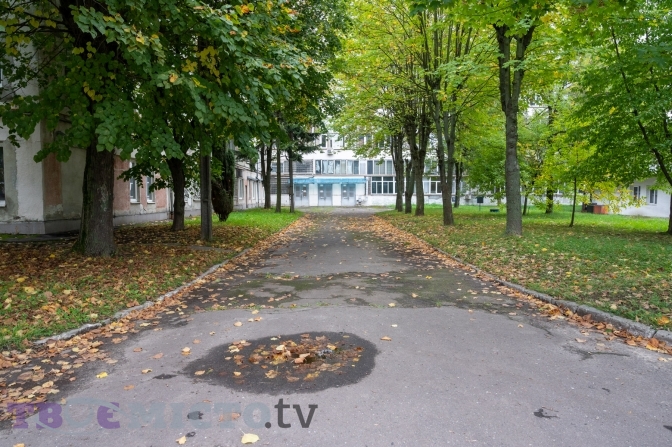
There are no clear conditions for privatization yet. The State Property Fund in the Lviv region promises to publish additional information soon.
Roman Monchyn assures that he already tried to save the plant several years ago. He proposed that the investor would help with the relocation and arrangement of the smaller production premises, in return he could get the rest of the territory and the main building:
«We have premises for a tool shop, we wanted to move production there and work there, and give this area to an investor. There was an investment plan, but Kyiv did not support such a proposal. We planned that the investor would renovate the building where the production would be located for 30 million and take our territory.»
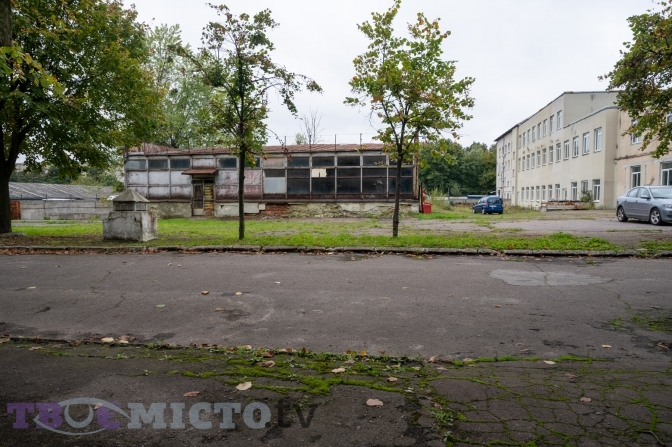
Mr Roman adds that, perhaps, after privatization, people will not end up on the street, because there is a condition that prohibits changing the company’s profile for five years.
«But it depends on the good faith of the entrepreneur. A businessman can leave a branch of chains where one person works, and fire the rest. It may be different, we’ll see. At this stage, it makes no sense to invest in such a large production. We have machines for huge series, but who needs it now?» – the director laments.
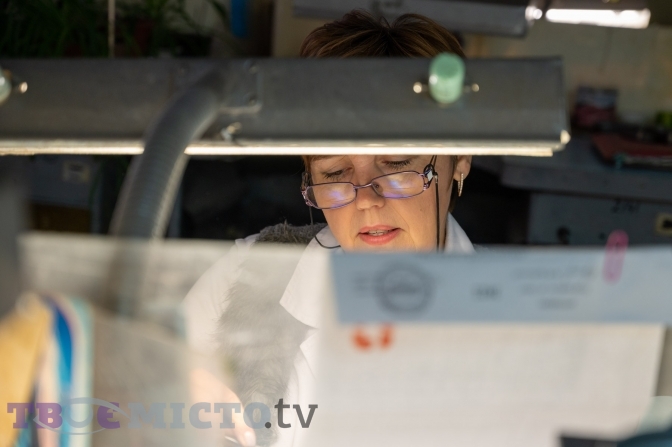
The State Property Fund did not confirm the information about the «condition not to change the company’s profile for five years». They say that more detailed conditions of privatization will be made public later.
Road for sale
According to the data of the YouControl analytical system, in 2021, by order of the State Property Fund of Ukraine, the state-owned enterprise «Lviv State Jewellery Factory» was turned into a private joint-stock company. The joint-stock company «Lviv Jewellery Factory» (EDRPOU code 05785017) is the legal successor to all obligations of the state enterprise «Lviv State Jewellery Factory».
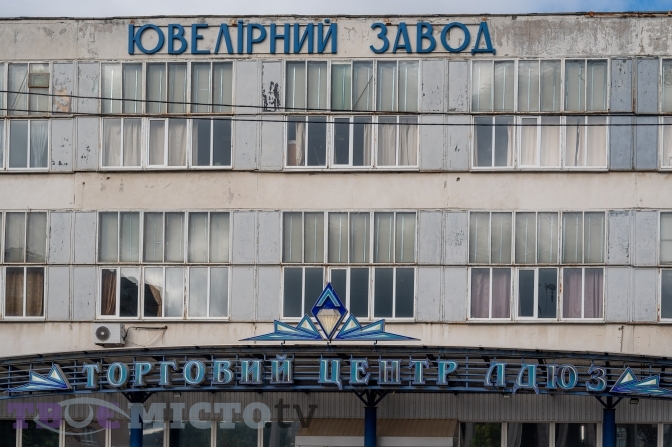
Currently, JSC «Lviv Jewellery Factory» is not bankrupt, but it has debts. More than 30 million tax debt is known. There is a resolution of the Lviv District Administrative Court, which states that the tax authority is suing the factory to recover funds from the accounts. The court decided to collect funds from the company’s accounts in the amount of UAH 30,385,668.82 and direct them to the state budget.
JSC «Lviv Jewellery Factory» managed to direct part of the funds to repay the relevant tax debt. As of today, UAH 340,064.26 has been paid.
From the financial report of 2021, it is known that the company is unprofitable. The plant received a net income of UAH 15,822,000, but the financial result of the company’s activity was a loss of UAH 3,108,000, for the first quarter of 2022, a loss of UAH 1,856,000.
Downsizing at the company began back in 2016. Seventeen employees were cut in 2021 and in the first quarter of 2022. Currently, the enterprise employs slightly more than 90 people.
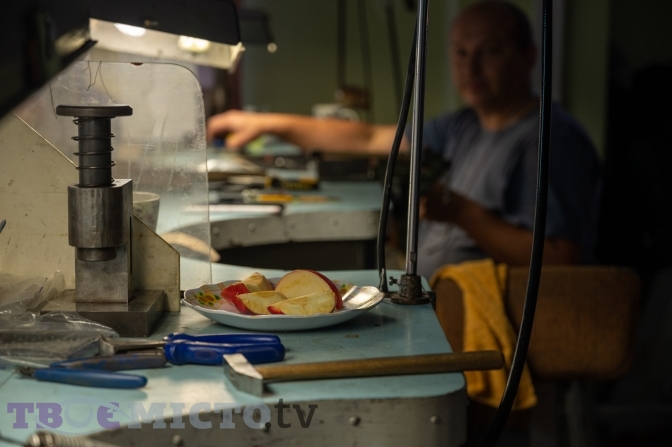
Since 2017, the plant has switched to a four-day work week, and from 2021 – to a three-day week.
On October 20, an auction for the sale of the Lviv Jewellery Factory will be held. The starting price is more than UAH 144 million. 100% of the authorized capital of JSC «Lviv Jewelry Factory», which is located on the street Akademika Pidstryhacha, 2, will be put up for auction.
The state is not a manager, so it is profitable to sell
In the summer of this year, the parliament adopted a draft law on rapid privatization, certain restrictions were removed to simplify this procedure. In general, the government is trying to reduce the state’s share in the economy by selling 150 state-owned enterprises to entrepreneurs by the end of 2022.
Vasyl Yurchyshyn, director of economic and social programs of the Razumkov Center, told Lviv Now that such an approach has many advantages, especially because the state is really an uneffective manager. However, everything will work out as best as possible if «politicization is removed from matters related to privatization» and they do not inflate the price of objects, trying to make the most money right away.
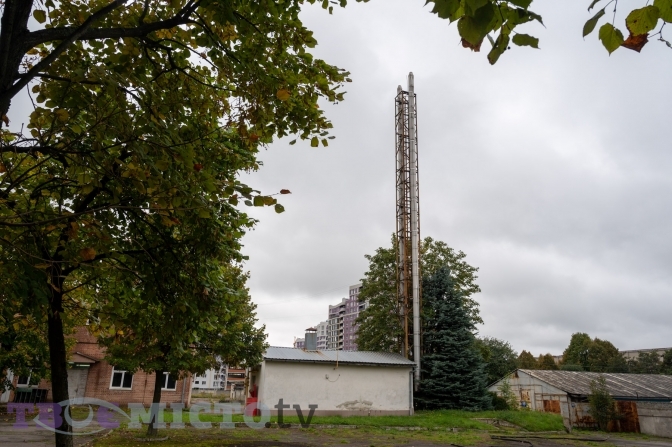
«The sphere of privatization is one of those spheres that shows the inability of state policy to organize and carry out important market transformations. If we are talking about filling the budget from the sale of state-owned enterprises, then this has never been done, but this should not be the main goal of privatization. The main goal is to create the institution of an effective private owner,» – the expert believes. – «The state gives the enterprise away because it is a bad manager. If we remove political interests or dishonest business interests from the sphere of privatization, create lively and understandable conditions, and do not inflate the price – then things will go well.»
In his opinion, it is more profitable for the state to have an effective owner (creation of jobs, stable revenues to the budget) than to get as much money as possible for the enterprise at once. After all, if the enterprise is interesting, then there will certainly be competition, and the price will rise.
The war, says Vasyl Yurchyshyn, is not the key reason in this case. Conditionally holding the enterprise in order to sell it more profitably after the war is not a rational decision.
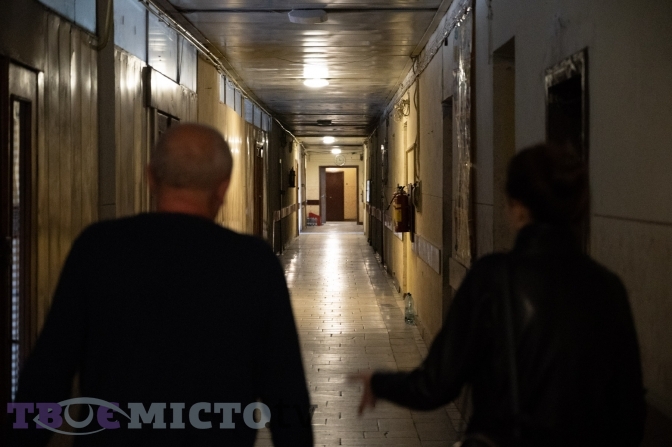
«The part of the country where industry is concentrated is currently under fire, and relocation is urgent. Business is now flexible and inventive, and it will no longer be the way it was before the war. Currently, there are many problems, including unemployment. But we study the experience of other countries – Poland, the Czech Republic, the Baltic countries, and it is clear that 90% of those who actively looked for a job during the year found it, moreover, with a salary no less than it was. And those who only complained all year remained in poverty,» – he explains.
Viktoria Savitska, Dmytro Borysov
Photo: Ivan Stanislavskyi
Translated by Vitalii Holich
Full or partial republication of the text without the written consent of the editors is prohibited and considered a violation of copyright.
Follow us on Facebook and Instagram. Lviv Now is an English-language website for Lviv, Ukraine’s «tech-friendly cultural hub.» It is produced by Tvoe Misto («Your City») media-hub, which also hosts regular problem-solving public forums to benefit the city and its people.











